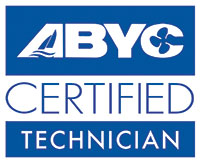Miami Boat Air Conditioning Repair
Found 98 results
MARINE AIR CONDITIONING REPAIR IN MIAMI
HOW TO FIND MARINE AIR CONDITIONING REPAIR IN MIAMI
Florida is hot all year round, so you’ll need a properly functioning marine air conditioner. Marine AC units can be very finicky and they put a lot of strain on the boat’s electrical system. Luckily, in the greater Miami area, this is such a major marine service that there are plenty of repair shops to choose from. Dania Beach, Port St. Lucie, Pompano Beach, Palm Beach, and Ft. Lauderdale have a high concentration of repair shops that specialize in marine air conditioning. If this were further north, we’d tell you to consult a marina that has a broader service offering, but in south Florida it would actually be to your benefit to find a specialist. The boating economy in South Florida is large, so it can support these high quality, specialized service providers. However, it would still be worth consulting your marina as to who they think would be able to service your marine AC the best. The marina may rent space to a repair shop on site, which would be a quick fix for you. If you want to survey your options and find competitive pricing, then the best thing to do is research online. A quick search on Mariner Exchange for marine air conditioning repair in your area will yield dozens of results with service providers that are rated and reviewed. It is also worth consulting the marine AC manufacturer. The manufacturer will have a dealer network that their customer service department should be able to connect you with. Dometic is the biggest manufacturer so the chances are your AC unit is one of theirs, but regardless you should see who the maker is and then head to the dealer locator on their website.
HOW TO FIND THE RIGHT MARINE AIR CONDITIONER
Marine AC is finicky, and there are several important things that you need to consider as you go about finding the right one for your boat. Various elements such as the air conditioner's capacity, energy consumption, and noise level are all factors that must be considered. You should also consult a professional to ensure that you’re getting the appropriate unit for your boat. Here are a couple tips to remember when looking for a marine air conditioner:
-
Capacity is important for marine AC: The cooling capacity of your unit has to match the size of the cabin where you’ll be installing it. Check how many BTUs of cooling power your unit puts out and then measure the interior of the cabin. You will want to consult a professional or the manufacturer to make sure the unit is a fit for your cabin or else it won’t keep your cabin cool.
-
Look for the newest tech: These days, there are a few signs that will suggest that you’re getting the most cutting edge engineering when it comes to your AC unit. Make sure the unit uses environmentally friendly refrigerant R-410A and that it includes mechanisms to reduce vibration. You want to be sure, however, that the vibration reduction measures don’t add a lot of unnecessary bulk to the unit. Some innovative features we’ve seen are things like rust-free drain pans, hermetically sealed units, and vibration isolation mounts.
-
Make sure your electrical system can handle the AC unit: Marine air conditioners come in all shapes and sizes, and all of those shapes and sizes require different amounts of electricity to run. Selecting the wrong unit could blow fuses and just plain not work with your battery and electrical system. In general, most units require anywhere from 115 volts at 60 Hz to 230 volts at 50 Hz.
-
Verify how much space the unit requires before purchasing it: Boat cabins are notoriously short on space, so everything you add should be as compact as possible so that you’re using the space as efficiently as possible. This is especially true with your AC unit. The various components of the unit include the electrical box, the compressor, tubing, wiring, etc. You can mount the units in line with the interior panels and run tubing inside of the interior walls or along the ceiling - whatever you need to do to conserve space. You need to balance this need to conserve space with the necessity to get the right unit with the cooling power to handle your size cabin.
-
Yes, zone climate control exists for boats like it does for your house: Although not as effective as it is for a home, there is zoned climate control for boats. If you are lucky enough to have a large boat, you may want to be able to adjust temperatures in different parts of the cabin. This requires a more complex AC system with multiple evaporator units. Likely, you would have one large condenser in your engineer room and then smaller evaporator units would be spread throughout the interior of the boat in the various cabins where you’d like to differentiate temperature.
-
Many marine air conditioners also provide heating: If you spend nights on your boat and it gets cold, you may want to consider an AC unit that can also double as a heater.


